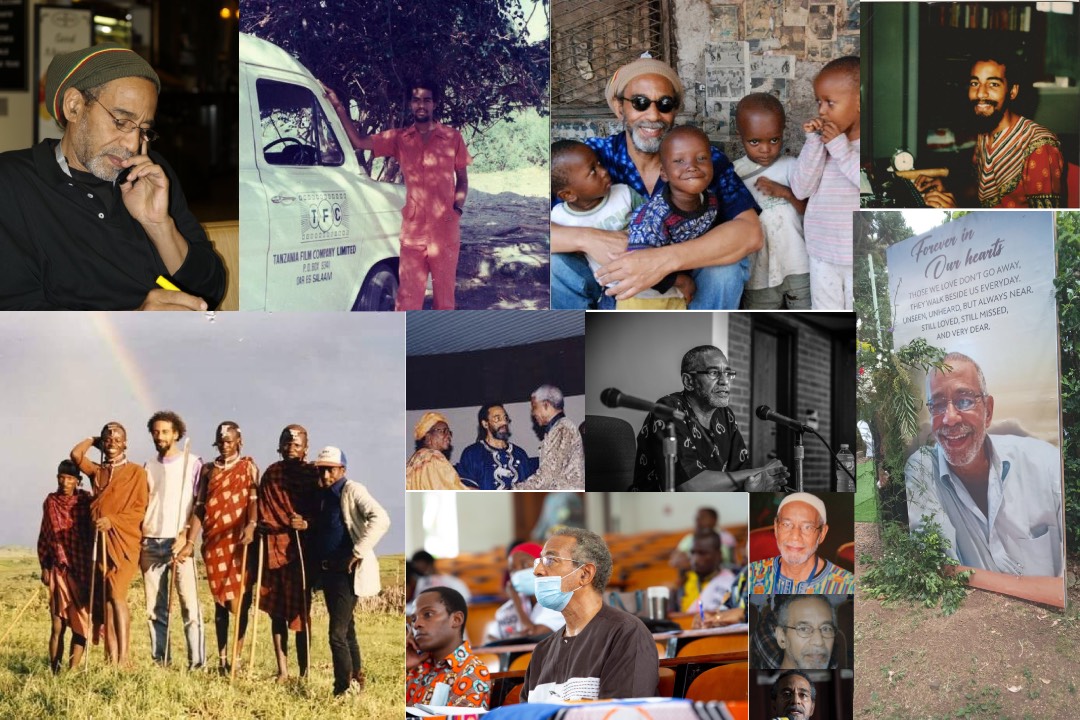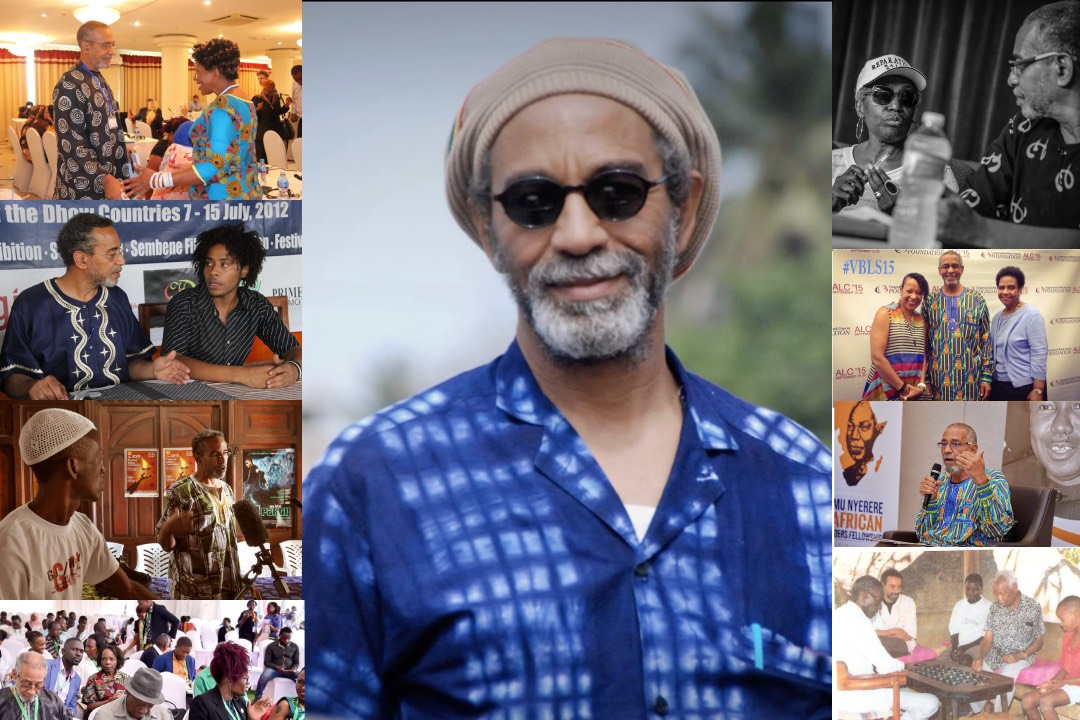Dear Ika,
When my brother texted me that you took refuge among our ancestors that night, I told him to leave me alone, and I slid into a heavy sleep. Earlier that week, I would have trouble sleeping with dreams that were more vivid than usual and would wake up exhausted. On the night ancestors reclaimed you, I slept like a baby.
When I woke up, I was sad, but tears were not running down my cheeks. I know those tears I have to cry up for you are somewhere beneath my neck, above my chest, sitting as little painful crystals that refuse to burn. I am in denial, just like that woman in The Horn of My Love. When other women’s husbands returned home to bring the news that her husband had died during the hunt, her response was, “I hear the horn of my love.” Acoli men would blow horns to celebrate their return from a successful hunting trip. Like this woman, I know you are lying down but I refuse to believe it.
Ika, I am a crazy Okot p’Bitek fanatic. I am so distressed I even forgot The Horn of My Love is a whole other book. I started combing through Song of Lawino only to realize I would not find what I was looking for in ‘The Last Safari to Pagak’ chapter. Nonetheless, p’Bitek in this chapter comes to my rescue. He says:
Why should lighting
Seek out your husband
From his bedroom?
Other women’s husbands
Are walking in the rain!
What is so sweet in your husband?
What is so bitter in other people’s sons?
(Page 10)
God forbid, I wouldn’t wish death upon other people’s children. I saw how much you took care of your health. Yes, you were in your Babu era, but you were not too old to take a walk and, on better days, swim. But I see mother death, as p’Bitek calls her, must have come swearing that you were her only child, and she would give you honey mixed with simsim. If I offered to make Ika honey mixed with roasted simsim, her counteroffer would probably be some air-fryer calamari! Goddamit!
Ika, you were a true mentor to a lot of us. While working on Women, Peace, and Security through the Unity Program, you took time, again and again, to help us understand through readings why it is important to have feminist and African perspectives when approaching the politics of policymaking. Before going to the field, you ensured that, as we did interviews and group discussions, we tried to see who the opinion leaders were in the community. You kept reminding us to double-check the information we received because, as a collective, the community could decide to tell us what they thought we wanted to hear.
It would have been nice if you saw the four of us graduate. I know you need and have to rest. But please don’t miss the graduation.
Do you remember that day we just walked into the jewel shop, and this young woman told us an entire story about how she was going blind until she found a doctor in one of those Ali Hassan Mwinyi Road glass-building eye hospitals? Until that day, I used to think those hospitals were mostly hyped. Maybe I never forget this young woman because she treated us, especially you, very well. The number of times I had to tell people you are a Tanzanian before, they could not treat you like Mzungu, sigh.
From where you are right now, I hope, for your sake, the soul has no genetic marker. That you were welcome and embraced as a man who worked to earn his living, a father who raised brilliant children, and a comrade who, even in his most agonizing moments, was thinking about organizing.
Speaking of comrades, people keep asking me whether I knew you. I tell them, yes, he is my mentor and my friend. It skips my mind that you are a comrade.
Ika, you didn’t sit and just do your academic duties but always sought ways to understand and engage society. You didn’t just trash the state but found ways to maneuver its machinery to reach communities as we work towards the revolution. You were not waiting for the day the state would be drawn from our own community and for the community to bring down its guard against the violence of the state for you to begin organizing. The presence of the Global Pan-African Movement in your last days and at the funeral says it all.

I think the reason I forget you are my comrade is that you are first my friend. We sat and waited together for the Sojourner’s children to come visit. God knows how blessed we felt when Mainda gave birth. You and Khalil spend the whole day talking with Mama’s grandchildren and taking seriously their never-ending questions.
Ika, I know it, there will be a day I will run into an inexperienced, unemployed, just graduated so-called volunteer from a nowhere Euro-American university who will say not just offensive things but expect my service to her quest of saving Africa. I know I will first shake my head, give them vidonge without being dramatic (like you taught me), and compose myself.
But I know I will have to wait and come and tell you this story in person in Arusha. God willing, I will not abandon you, Ika. It may take long before I pay you a visit, but I will come.
Ika, I am praying for you until the day I can cry these tears we cry when we lose someone important to us. May you know peace in the lane you are on now. The trauma of the Vietnam War that you experienced firsthand through your brother, the excruciating pain of trying to help society organize itself after the genocide in 1994, and the Burundi peace talks, just in their own right, each of these things can wear you out.
May you be free to move without the limitation of an aching back or the constant fear you had since becoming of age as a Black man who could not only sit facing the door in case the state walked in, in person. I pray that you are as free as all the things Khadija Nin sang about because I know before God, you are leaving no debts!
Love,
Diana Kamara

So well written. Goodness!
Ancestors teach us that there’s no death; there is only completion. Death completes us. Death closes the circle.
Anna S. Manyanza, she who dwells by the lake.
I am awestruck by this eulogy! What a piece!!
Amen!
So lovely and touching and personal remembrance! Thanks so much for sharing.
Rudeanl
Ika is proud to call you a comrade. Thank you for sharing with us what you two had. Rest on and well Ika.
Very touching massage Diana… thank you for putting all this together for our dear Ika… will be missed dearly…
Thank you for this beautiful dirge that sings to and for us all.
Very touching message Diana. We will miss our lovely Ika dearly. Thanks for sharing, Rest in peace and lovely heart.